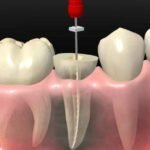Ashwagandha, a regarded herb in Ayurvedic medicine, has caught the eye of modern wellness enthusiasts due to its far-reaching health advantages. Its scientific name is Withania somnifera, but people also call it Indian ginseng or winter cherry. This adaptogenic plant has a long history of use to boost vitality, toughness, and equilibrium. These days scientific studies are starting to back up many of the age-old claims showing how ashwagandha can support bodily and mental health. Here are five of the most convincing health benefits of this potent herb.
Stress and Anxiety Reduction
Ashwagandha is best known for its ability to help the body handle stress. As an adaptogen, it has an influence on the body’s natural ability to deal with physical and emotional stressors. Several clinical studies have shown that ashwagandha can lower levels of cortisol, the hormone most linked to stress. In randomized, placebo-controlled trials, people who took ashwagandha said they felt less anxious and had better moods compared to those who got a placebo.
This calming effect is thought to have its roots in ashwagandha’s impact on the hypothalamic-pituitary-adrenal (HPA) axis, which controls the body’s stress response. People struggling with ongoing stress or anxiety might find that adding ashwagandha to their daily habits offers a natural and potent way to boost emotional stability.
Anti-Inflammatory and Cancer-Fighting Properties
New studies indicate that ashwagandha has an influence on inflammation reduction, which may help prevent and treat cancer. Tests in labs have revealed that root and leaf extracts from this plant can slow down the growth of some tumor types. Also, it has antioxidants that fight free radicals, which can damage cells and cause inflammation.
Though we need more studies on humans to back up these findings, the early results look good. Ashwagandha might work well with standard cancer treatments to lower inflammation and boost the immune system.
Improved Sleep Quality
Sleep problems are widespread in our busy world today, and ashwagandha might provide a natural fix. A thorough look at controlled studies found that taking ashwagandha led to small but real improvements in sleep quality especially for people with insomnia. The biggest benefits showed up in people who took more than 600 mg for eight weeks.
In older people, ashwagandha has also been shown to boost overall wellness and mental sharpness, which backs up its role in helping with restful sleep. If you’re asking, does ashwaganda work for sleep? Research hints it could be a good addition to a complete sleep routine.
Cognitive Function and Memory Support
Aging naturally leads to cognitive decline, but ashwagandha might slow this process and boost brain health. Research on people with mild cognitive impairment shows that ashwagandha can improve immediate and general memory, while also enhancing attention and processing speed. Experts think these effects stem from the herb’s ability to cut down oxidative stress and support neuroprotective pathways.
Besides its potential memory benefits, ashwagandha could help prevent neurodegenerative diseases like Alzheimer’s. While we need more studies current findings hint that ashwagandha might be key to maintaining sharp cognitive function.
Male Fertility Enhancement
Ashwagandha has a history of use in traditional medicine to boost reproductive health, and new research backs up its ability to enhance male fertility. Tests show that men who took ashwagandha pills for 90 days saw big jumps in their sperm count, movement, and volume. One study found that men who couldn’t have kids showed clear improvements in their sperm quality and hormone levels after treatment.
These results point to ashwagandha’s power to improve reproductive function for guys whose fertility issues stem from stress. Its capacity to balance hormones and cut down on oxidative stress might explain these good outcomes.
Conclusion
Ashwagandha isn’t just a popular supplement—it’s an herb with a long history and growing scientific backing for its health perks. It has an influence on many aspects of well-being, from stress reduction and better sleep to sharper thinking and improved fertility. This ancient remedy offers a well-rounded approach to health. While we still need more studies to fully grasp how it works and what doses work best, current research hints that it plays a key role in modern health practices. As with any supplement, it’s crucial to check with your doctor before you start taking ashwagandha to make sure it’s safe and effective for you.
















